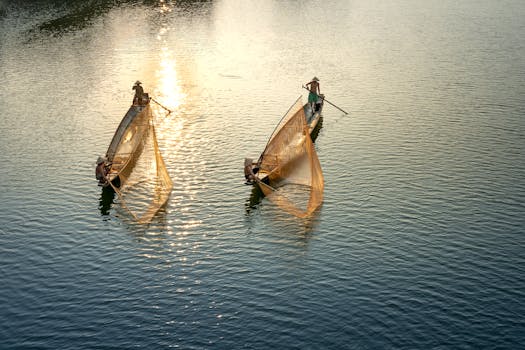+17162654855
+17162654855
NRP Publication News serves as an authoritative platform for delivering the latest industry updates, research insights, and significant developments across various sectors. Our news articles provide a comprehensive view of market trends, key findings, and groundbreaking initiatives, ensuring businesses and professionals stay ahead in a competitive landscape.
The News section on NRP Publication News highlights major industry events such as product launches, market expansions, mergers and acquisitions, financial reports, and strategic collaborations. This dedicated space allows businesses to gain valuable insights into evolving market dynamics, empowering them to make informed decisions.
At NRP Publication News, we cover a diverse range of industries, including Healthcare, Automotive, Utilities, Materials, Chemicals, Energy, Telecommunications, Technology, Financials, and Consumer Goods. Our mission is to ensure that professionals across these sectors have access to high-quality, data-driven news that shapes their industry’s future.
By featuring key industry updates and expert insights, NRP Publication News enhances brand visibility, credibility, and engagement for businesses worldwide. Whether it's the latest technological breakthrough or emerging market opportunities, our platform serves as a bridge between industry leaders, stakeholders, and decision-makers.
Stay informed with NRP Publication News – your trusted source for impactful industry news.
Energy

The Baltic Sea, a unique and challenging marine environment, is witnessing a fascinating evolutionary tale unfold before our eyes. The Baltic cod ( Gadus morhua ), a vital part of the ecosystem and a crucial commercial fish species, is shrinking. But this isn't a sign of decline; instead, it represents a remarkable adaptation to intense fishing pressure, a compelling example of natural selection in action. This phenomenon, often referred to as "fishing down the food web" and "evolutionary rescue," is forcing scientists to rethink traditional fisheries management strategies. Keywords: Baltic cod, overfishing, fish evolution, evolutionary adaptation, fishing pressure, selective fishing, fisheries management, smaller fish size, natural selection, genetic changes, population dynamics.
For decades, the Baltic cod population has faced relentless pressure from commercial fishing. Large, mature cod are the primary target, leading to a selective removal of larger individuals from the gene pool. This selective fishing pressure has had a profound impact on the population's genetic makeup. Research published in leading scientific journals demonstrates a clear trend: the average size of Baltic cod is significantly smaller than it was just a few decades ago.
This isn't merely a reduction in overall biomass; it's a fundamental shift in the population's genetic characteristics. Scientists have identified specific genetic markers associated with smaller body size in the surviving Baltic cod. This indicates that smaller size is now a heritable trait, passed down through generations. The genes associated with rapid growth and larger body size are being less frequently passed on, while those promoting faster maturation and smaller adult size are becoming increasingly prevalent. This is a classic example of directional selection, a key mechanism of evolution.
The shrinking size of Baltic cod presents a significant challenge for the fishing industry. Smaller fish are more difficult to catch using traditional fishing gear, such as gillnets. This, ironically, provides a degree of natural protection against further overfishing. While smaller fish are still caught, the efficiency of the nets decreases significantly, thus reducing the fishing yield. This highlights the complex interplay between evolutionary adaptation and human activities.
However, the smaller size also carries negative consequences. Smaller fish have lower market value, impacting the economic viability of the fishing industry. Moreover, smaller cod may have lower reproductive success than larger cod, particularly in a depleted environment.
This evolutionary response emphasizes the need for a more holistic approach to fisheries management. Traditional strategies focused solely on catch limits may be insufficient in the face of rapid evolutionary changes. Keywords: sustainable fisheries, adaptive management, stock assessment, bycatch reduction, marine conservation, ecosystem-based management.
The evolutionary response of Baltic cod is not unique. Similar trends have been observed in other fish populations worldwide facing intense fishing pressure. The phenomenon of smaller fish sizes in response to overfishing is a growing concern among marine biologists and fisheries scientists. This underscores the pervasive impact of human activities on marine ecosystems and the urgent need for sustainable fisheries practices.
Scientists are now exploring innovative strategies to address this challenge. These include:
The incredible shrinking fish of the Baltic Sea serves as a stark reminder of the power of natural selection and the profound impact of human activities on marine ecosystems. While the adaptation of Baltic cod is impressive, it’s not a solution to overfishing. The smaller size reduces the economic viability for the fishing industry and potentially impacts the long-term health of the cod population and the broader Baltic Sea ecosystem. The future of Baltic cod, and indeed the sustainability of global fisheries, hinges on adopting a more sustainable and adaptive approach to fisheries management, one that takes into account the evolutionary responses of the fish themselves. The continuing study of this fascinating example will be vital in shaping future conservation strategies. Keywords: marine conservation, ocean sustainability, climate change, biodiversity loss, sustainable development goals.